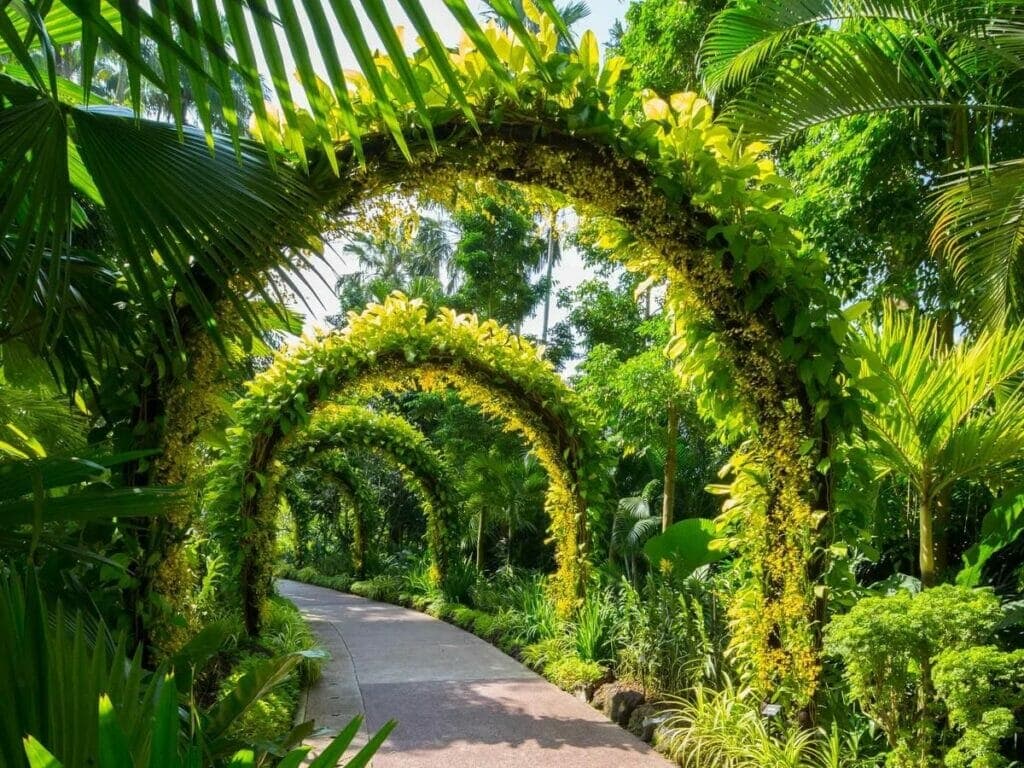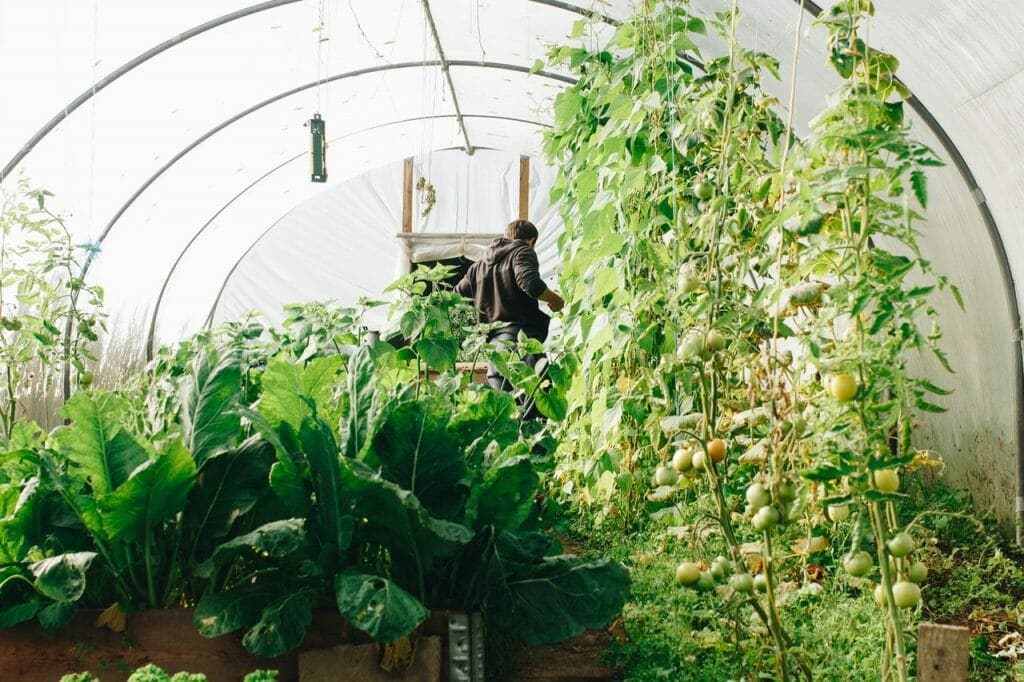Everything You Need to Know About Botanical Gardens
Have you ever wondered what a botanical garden is? A botanical garden is a garden that contains plants that are used for scientific purposes. Botanical gardens are usually created for the study of plants, but can also be created for other purposes such as recreation or conservation. In this blog post, we will take a closer look at what botanical gardens are, what they are used for, and some of the benefits of having one.
What is a Botanical Garden?
A botanical garden is a place where plants, especially trees, shrubs, and herbs, are cultivated for scientific and educational purposes. These gardens are usually attached to universities or research institutions, and they often have greenhouses, libraries, and herbaria on site.
While individual botanical gardens vary in size and scope, they all share a common goal: to advance our understanding of the plant kingdom. In this blog post, we’ll take a closer look at some of how botanical gardens further this goal.
One of the main benefits of having a botanical garden is that they help to conserve plant species. Many species of plants are in danger of becoming extinct, and botanical gardens work to preserve them. Often, botanical gardens will have programs to help reintroduce endangered species into the wild.
Another benefit of botanical gardens is that they are great places to learn about plants. Many botanical gardens offer educational programs for children and adults. These programs can teach you about the different parts of plants, how they grow, and how to take care of them.
Scientific Research
One of the primary functions of a botanical garden is to conduct scientific research. Scientists at botanical gardens conduct research on everything from the Evolution of flowers to the effects of climate change on plant growth. This research helps us to understand how plants interact with their environment and how they have adapted to changes over time.
Botanical gardens also play an important role in the conservation of rare and endangered plants. By conducting research on these plants, scientists can develop methods for propagating them in captivity. This ensures that these plants will not go extinct even if their natural habitats are destroyed.

Education and Outreach
Another important function of a botanical garden is education and outreach. Botanical gardens offer educational programs for schoolchildren, families, and adult learners. These programs typically focus on topics like plant biology, horticulture, and ecology.
Many botanical gardens also offer internships and volunteer opportunities. These programs allow people to get hands-on experience working in a professional setting while also contributing to the work of the garden.
Botanical gardens are important places for scientific research and education. They allow us to better understand how plants interact with their environment and help us to conserve rare and endangered species. If you’re looking for a way to learn more about plants or get involved in conservation efforts, consider visiting your local botanical garden.
What are Botanical Gardens Used For?
Botanical gardens are most commonly used for the study of plants. Scientists use botanical gardens to learn about plant biology and to conduct experiments on how plants grow and react to different conditions. Botanists also use botanical gardens to collect and store plant specimens so that they can be studied in detail. In addition to being used for scientific research, botanical gardens can also be used for recreation and education. Many botanical gardens have public walking trails and exhibits that teach visitors about different types of plants.
Conserving Plants
One of the most important functions of botanical gardens is plant conservation. As development encroaches on natural habitats, many plant species are at risk of extinction. Botanical gardens house endangered plants and work to propagate them so that they can be reintroduced into the wild. In some cases, a botanical garden may be the only place a particular plant species still exists.
Conducting Research
One of the most important things you can do to conserve the plants in your botanical garden is to water them correctly. Over-watering can lead to root rot, which can kill a plant. Underwatering can cause a plant to wilt and die. Depending on the type of plants you have, you’ll need to water them accordingly. For example, cacti and succulents need very little water, while ferns need a lot of water. Be sure to do your research so that you’re watering your plants correctly.
- Fertilizing Schedule: Another important aspect of plant conservation is fertilizing. Fertilizer provides plants with the nutrients they need to grow healthy and strong. However, too much fertilizer can be just as harmful as too little. Be sure to follow the instructions on the fertilizer packaging carefully so that you’re not over- or under-fertilizing your plants. A general rule of thumb is to fertilize your plants once a month during the growing season and then take a break during the winter months.
- Pest Control: Pests can wreak havoc on your botanical garden, destroying everything you’ve worked so hard to grow. Be proactive about pest control by regularly inspecting your plants for signs of infestation. If you see any pests, such as aphids or spider mites, remove them immediately. You can also use natural pest control methods, such as releasing ladybugs into your garden, instead of chemical pesticides.
By following these simple tips, you can help preserve the plants in your botanical garden so that they thrive for years to come. Watering, fertilizing, and pest control are all important aspects of plant conservation. Do your research and stay vigilant in order to maintain a healthy and vibrant botanical garden.

Providing Education
In addition to conducting research, botanical gardens also play an important role in educating the public about plants. Garden staff members give tours and lead educational programs on topics like horticulture, ecotourism, and botany. Some gardens even have classrooms where students can learn about plants in a hands-on setting.
Botanical gardens serve a variety of important functions, from plant conservation to public education. The next time you visit one of these institutions, take a moment to appreciate all the hard work that goes into keeping it running smoothly.
Benefits of Having a Botanical Garden
There are many benefits of having a botanical garden. Botanical gardens can help scientists learn about plant biology and how to grow different types of plants. They can also be used for recreation and education. Botanical gardens can even help preserve rare and endangered plants. By having a botanical garden, you can help make a difference in the world!
Botanical gardens are not only beautiful, but they also serve an important purpose. They provide a space for people to relax and appreciate nature, while also helping to educate the public about plants and their importance. Here are just a few of the many benefits of having a botanical garden in your community.
Beautiful and Relaxing Spaces
Botanical gardens are blessed with an abundance of natural beauty. Whether you are looking at colorful flowers, stately trees, or well-manicured lawns, there is always something to appreciate. This makes them the perfect place to take a stroll, have a picnic, or just sit and relax. The sights and smells of nature have been shown to have a calming effect on the mind and body, so spending time in a botanical garden can be good for your health!
Educational Opportunities
In addition to being lovely places to spend time, botanical gardens also offer educational opportunities for people of all ages. Visitors can learn about the different types of plants that are native to their area, as well as how those plants are used by animals and humans. Many gardens also host classes and workshops on topics like gardening, plant identification, and flower arranging. By providing these opportunities, botanical gardens help people develop a greater appreciation for the natural world.
Conclusion:
Botanical gardens are living museums that showcase a wide variety of plants. They offer a fascinating glimpse into the diversity of plant life on our planet and provide a place for people to learn about the importance of plants in our ecosystems.
Botanical gardens are important because they help scientists learn about plant biology, assist in environmental preservation projects, and provide people with a place to relax and enjoy nature. If you have the space, we highly recommend creating your mini-botanical garden. If you have the opportunity to visit a botanical garden, we highly recommend that you take advantage of it!



